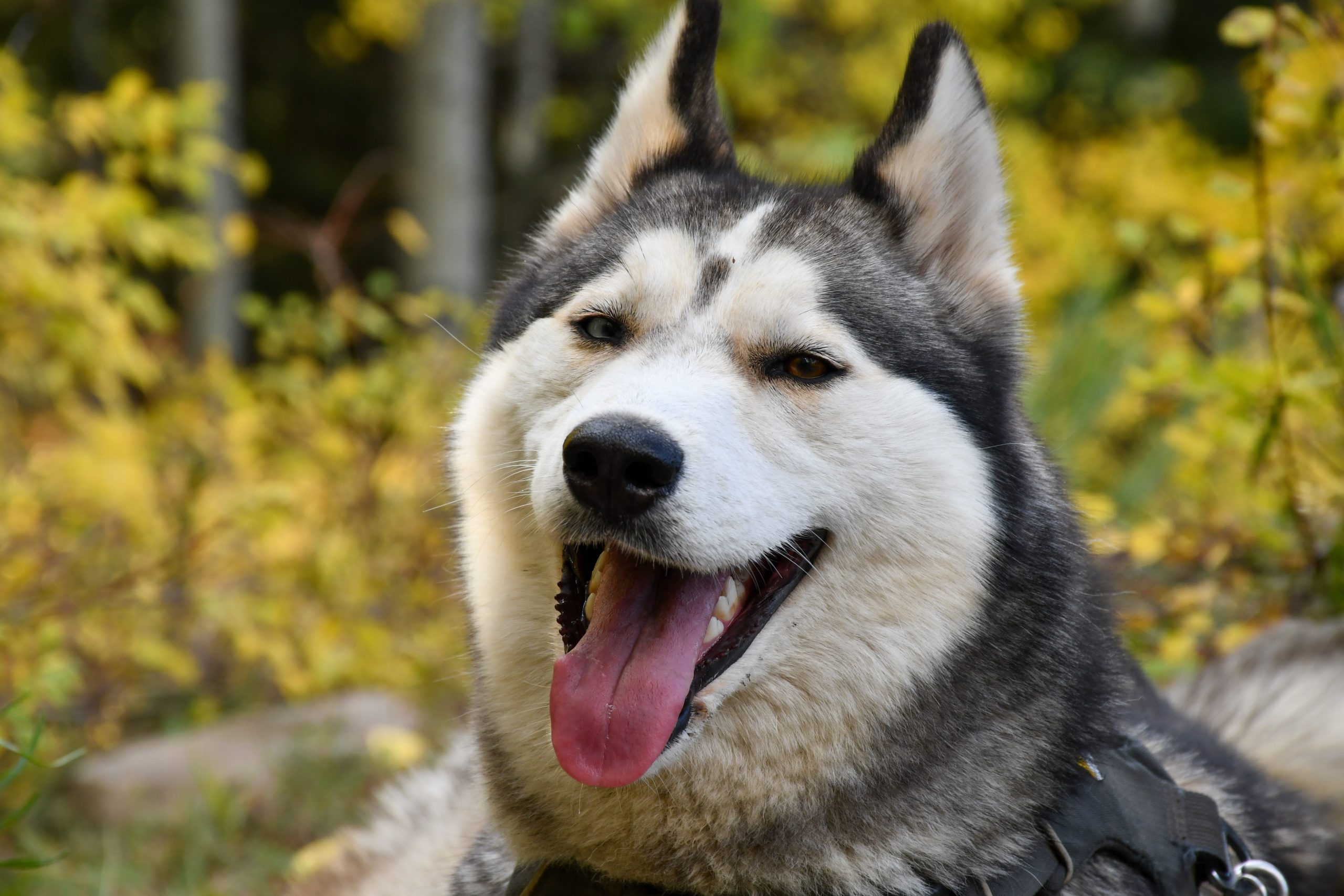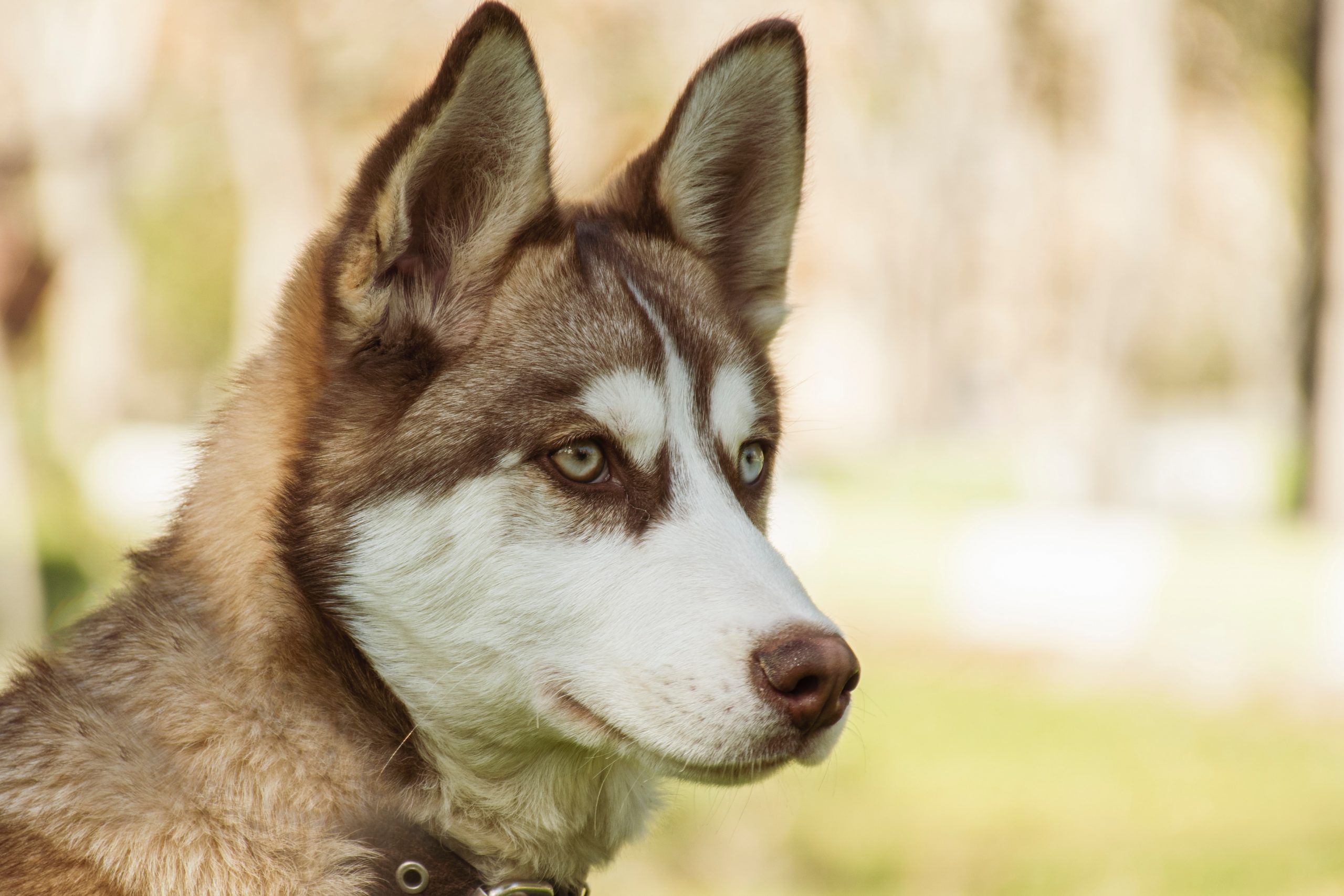Siberian Huskies are enchanting dogs known for their wolf-like appearance and vibrant eyes. While admired for their beauty, understanding their temperament is crucial for potential owners. Below are eight temperament traits of the Siberian Husky.
1. Energetic and Adventurous
Huskies are bursting with energy, requiring ample exercise and mental stimulation. They thrive in active households where they can expend their energy through play, runs, and other activities. The adventurous spirit of Huskies makes them excellent companions for outdoor enthusiasts.
2. Intelligent but Stubborn
While Huskies are intelligent, they are also notoriously independent and stubborn. Training a Husky requires patience and consistency, as they tend to think for themselves and don’t always obey commands immediately.
3. Friendly and Sociable
Huskies are known for their friendly and outgoing temperament. They usually get along well with humans and other dogs. Their sociable nature, however, means they are not typically suited to being guard dogs as they are not overly suspicious of strangers.
4. Loyal but Not Possessive
Huskies form strong bonds with their families but are not overly possessive or protective. They love their owners but also enjoy making new friends, demonstrating a balanced and well-adjusted social demeanor.
5. Vocal and Expressive
One unmistakable trait of Huskies is their vocalization. They are known for howling, which can be charming but also challenging for owners, especially those living in closely-knit communities or apartments.
6. Hardworking and Resilient
Originally bred as sled dogs to work in harsh conditions, Huskies are hardworking and resilient. They enjoy having a job to do and thrive when engaged in activities that challenge both their mind and body.
7. Mischievous and Curious
Owners often describe Huskies as “escape artists” due to their ability to find their way out of enclosures. Their mischievous and curious nature means that a secure living environment is crucial.
8. Adaptable to Climate
While they have a thick double coat designed for cold climates, Huskies can adapt to warmer climates as long as they are provided with shade, water, and a cool place to rest.
Huskies are wonderful companions for individuals and families who appreciate their unique traits and can meet their needs for exercise, training, and care. Their friendly and loyal nature, combined with their striking appearance, makes them a popular and beloved breed worldwide.
How Does a Male Husky Temperament Compare to a Female Husky?
Male Husky Temperament:
1. More Dominant
Male Huskies often exhibit more dominant behavior. They like to see themselves as the alpha and may challenge for leadership more than females. This trait requires owners to establish firm and confident leadership from early on.
2. Higher Energy Levels
Typically, male Huskies possess higher energy levels and may be more playful and active throughout their lives. They require ample exercise and mental stimulation daily to keep them balanced and happy.
3. Consistent Affection
Males tend to be more consistent in their levels of affection towards their owners. They are often more attention-seeking and enjoy being in the company of their human family members.
4. Larger Size
Male Huskies are generally larger than females, which is something to consider if the size is a significant factor for a prospective owner.
Female Husky Temperament:
1. Independent Nature
Females are usually more independent than their male counterparts. They are often content spending time alone and may not seek attention as actively as males do.
2. Mood Variations
A female Husky might experience mood swings, particularly during her heat cycles if not spayed. Awareness and understanding of these behavioral changes are crucial for a harmonious relationship.
3. Easier to Train Initially
Females are often seen as easier to train in the early stages due to their independence and less challenging demeanor. However, this can also mean they are more reserved in their interactions.
4. Smaller in Size
Generally, female Huskies are smaller than males. This difference in size may be significant for owners who have specific space or physical handling capabilities.
Frequently Asked Questions about a Husky’s Temperament and Personality

- Are Huskies aggressive dogs?
- Huskies are generally not aggressive. They are known to be friendly and good-natured dogs that get along well with both people and other dogs. However, early socialization is essential to promote these positive traits.
- Do Huskies make good family pets?
- Yes, Huskies can make excellent family pets for active families. They are loyal and tend to form strong bonds with all family members, making them great companions for children as well.
- How intelligent are Huskies?
- Huskies are highly intelligent but also independent, which sometimes can be mistaken for stubbornness. They learn quickly but also need engaging training sessions to keep them interested.
- Are Huskies good with other pets?
- While they can coexist with other dogs, Huskies have a high prey drive. It’s crucial to socialize them from a young age, and caution should be exercised around smaller animals.
- How much do Huskies bark?
- Huskies aren’t big barkers, but they are known for their unique vocalizations, including howls. Training them to obey commands can help manage their vocal tendencies.
- Are Huskies good off-leash?
- Due to their strong prey drive and independent nature, Huskies are often not reliable off-leash. It’s recommended to keep them on a leash or in a securely fenced area.
- Can Huskies live in warm climates?
- While they are better suited to colder climates due to their thick coat, Huskies can adapt to warmer weather with proper care, like providing plenty of shade and water.
- How are Huskies with strangers?
- Huskies are typically friendly and outgoing, even with strangers. They aren’t naturally suspicious, which doesn’t make them particularly good guard dogs.
- Is it hard to train a Husky?
- While intelligent, Huskies’ independent streak can make training a challenge. Consistent, patient, and positive reinforcement-based training methods work best.
- Do Huskies require a lot of grooming?
- Huskies have a thick double coat that sheds, especially during shedding season. Regular brushing and occasional baths will keep their coat healthy and minimize shedding.
- Can Huskies be apartment dogs?
- With enough exercise and mental stimulation, Huskies can adapt to apartment living. However, they do best with more space where they can expend their energy.
- How much exercise do Huskies need?
- Huskies are active and require a substantial amount of exercise daily, including walks, runs, and playtime, to keep them healthy and content.
- Are Huskies good for first-time dog owners?
- Due to their training and exercise needs, Huskies may be challenging for first-time owners. They require a committed owner willing to put in the time and effort.
- Do Huskies get along with cats?
- Their high prey drive can make it difficult for Huskies to coexist peacefully with cats and other small animals unless they are socialized together from a young age.
- Are Huskies hypoallergenic?
- No, Huskies are not hypoallergenic. They have a double coat that sheds seasonally, which can be problematic for individuals with allergies.
What Kind of Person Is a Good Fit for a Husky?

Siberian Huskies are known for their wolf-like features and energetic personalities. While they make for captivating companions, Huskies are not the perfect fit for everyone. Here are seven types of individuals who are typically well-suited for a Husky.
1. Active Individuals
- Huskies are highly energetic dogs that require substantial exercise daily. Individuals who lead active lifestyles, enjoying activities like running, hiking, or cycling, will find in Huskies the perfect exercise partners.
2. Experienced Dog Owners
- Due to their independent and somewhat stubborn nature, Huskies are better suited to those who have experience in dog ownership and training. Experienced owners are more likely to effectively establish leadership and handle their temperament.
3. Families with Older Children
- Huskies usually get along well with children, particularly older kids who can interact with pets responsibly. The breed’s energy and size might be overwhelming for toddlers, so families with older children are often a better fit.
4. Patient Trainers
- If you have a patient demeanor and are committed to consistent training, a Husky might be right for you. Their intelligence paired with an independent streak requires a patient and persistent trainer.
5. People with Adequate Living Space
- While Huskies can adapt to various living situations, having ample space is beneficial due to their energy levels. A home with a securely fenced yard where they can run and play is ideal.
6. Individuals Living in Cooler Climates
- Huskies have a thick double coat designed for cold weather, making them more comfortable in cooler climates. Though they can adapt to warmer environments, extra precautions and care are necessary in hot weather.
7. Long-Term Commitment Seekers
- Huskies have a lifespan of around 12 to 15 years. Prospective owners should be prepared for a long-term commitment to their pet, providing care, love, and attention throughout the dog’s life.
A Siberian Husky can be a delightful addition to the right household. If you are an active individual or family with a love for training and engaging with your pet, and you live in a suitable environment, a Husky can be a fantastic companion. Always consider adopting from shelters or rescues, where many Huskies are waiting for their forever homes. With the right match, Huskies prove to be loyal, loving, and endlessly entertaining companions, providing joy and adventure to their owners’ lives.
 Toledo, United States.
Toledo, United States.
